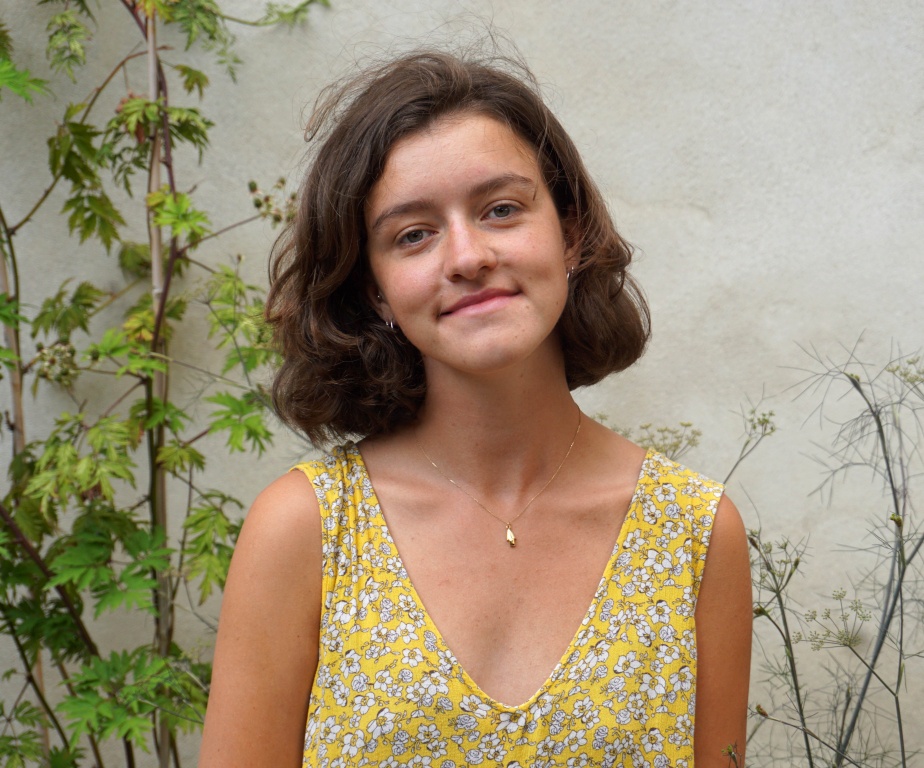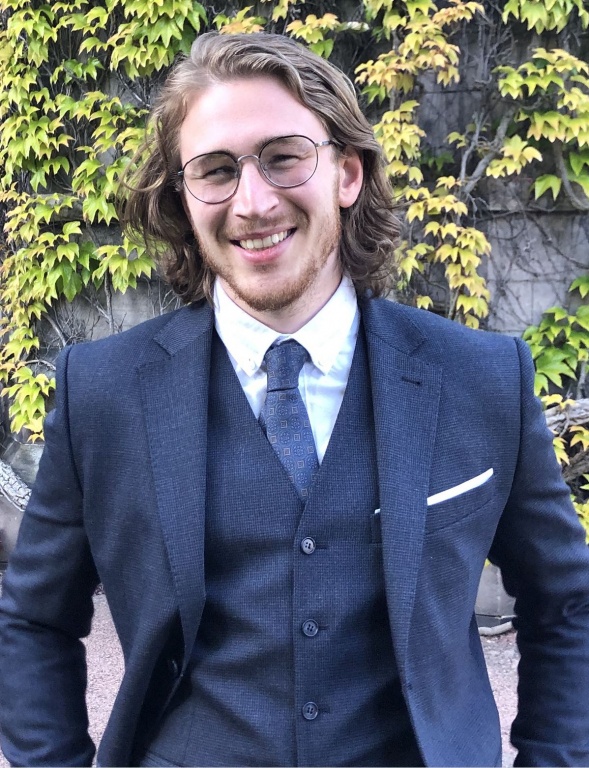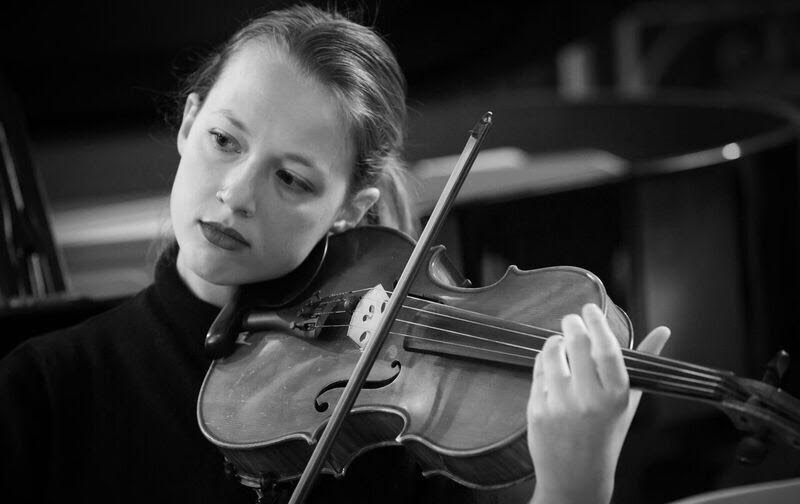The School of Social Sciences would like to congratulate the entire graduating class of 2020 for their outstanding achievements and accomplishments over the course of their degrees. A special acknowledgement goes to the recipients of the departmental subject awards;
Anthropology
- Hanna Louise: 'Most Successful Student in Anthropology' and also 'Best Anthropology Dissertation' (awarded jointly this year)
- Tanja Jensen: 'Best Anthropology Dissertation' (awarded jointly this year)
Politics and International Relations
- Lea Berndorf: 'Frank Bealey Prize' in Politics and International Relations
- Niklas Loether: 'Best International Relations Dissertation'
- Cameron Roy: 'Grant Jordan prize for Best Politics dissertation'
- Verena Zimmerman: 'Best Politics Student'
- Jasper Friedrich: 'Best International Relations Student'
- Jan Hendricks: 'Janet McMurtrie prize'
Sociology
- Julia Aronsson: 'The Mike Hepworth Memorial Prize for the best Sociology dissertation'
- Sofia Galli: 'Best Student in Sociology'
This year's prize recipients were able to share their memories, accomplishments and future ambitions.
Hanna Louise, recipient of 'Most Successful Student in Anthropology' and also 'Best Anthropology Dissertation' (awarded jointly this year)
What were your experiences while studying at Aberdeen, any particular highlights?
When I started studying I had just spent time travelling and had no idea what I wanted to do, so I started a sociology degree. I hadn't even heard of anthropology! After doing some introductory modules, I switched to anthropology because it seemed so open, like you could study any aspect of human life that interested you.
The Ethnography module in 3rd year was a definite highlight of my experience. In this class, we got to write short fictitious ethnographies in the style of various established anthropologists, which helped us find our own ethnographic voice. After taking that class, I realised anthropology would let me blend creative and academic writing so that my dissertation could be a totally unique, creative piece that I actually had a great time writing!
My overall experience as an Anthropology undergrad at Aberdeen has been amazing. The campus is beautiful, the department is so supportive and nurturing, and I learned to think critically and share my opinions in class without feeling self-conscious.
What are your plans for the future?
My plan for the immediate future is to stay in Aberdeen and remain in academia. I am starting the MRes programme in Social Anthropology in September, after which I intend to apply to do a PhD. The current pandemic has exposed the extent of inequality in the UK, and I believe anthropological research can centre marginalised voices and call for better social systems to support marginalised groups who are always the most vulnerable in times of crisis. I'm still figuring out what kind of research I want to do, but I hope to be part of the Covid19 recovery process in some small way.
Tanja Jensen recipient of 'Best Anthropology Dissertation' (awarded jointly this year)
What were your experiences while studying at Aberdeen, any particular highlights?
I started off by pursuing a joint degree in anthropology and geography since I was unsure which path to follow and soon discovered a love for anthropology I didn’t expect. Fortunately I could dedicate myself to it fully thanks to the flexibility of the degree. I was incredibly lucky to be taught by committed anthropology lecturers who were interested in my work, who were open to talk about ideas and guide me through them, and kept the studies fun and unpredictable throughout the four years.
I share many of my best experiences with the people I met through the university. The friends I made were all quite different but all had a profound impact on me. My time with them was defined by spoken word and music performances, finding the best coffee and cake combo in the city, projector movie nights, and dancing in tunnels. They made Aberdeen feel like home while I was there.

What are your plans for the future?
I’m continuing my education by doing a masters in anthropology at the University of Copenhagen and in the process hopefully find out what I want to do with the rest of my future.
Lea Berndorf recipient of Frank Bealey Prize in Politics and International Relations
What were your experiences while studying at Aberdeen, any particular highlights?
My study experience in Aberdeen couldn’t have been any better! During the four years of my degree I had the chance to get to know the beautiful people and landscapes of Scotland and I met some of my closest friends along the way. I learned a lot from my fellow students and was able to build a great network of sharp minds. I was impressed by the School’s motivated teaching staff and especially Dr Stuart Durkin and Dr Malcolm Harvey’s innovative, group work-based styles of teaching have made a lasting impression on me. Socially, what really stood out to me was being part of the uni’s football team, AUWFC. I feel extremely lucky that I can call myself a part of such a diverse and open community that this team is. Being part of AUWFC elevated my student experience in Aberdeen to a whole other level. I’m beyond thankful for the amazing time I’ve had and for the people I’ve met along the way.

What are your plans for the future?
At the moment I’m enjoying the summer and spending lots of time with my family and friends back home in Duisburg, Germany. Although planning for the future isn’t the easiest right now, I would like to pursue my interests in the field of memory politics and culture with a focus on German Erinnerungskultur.
Niklas Loether: 'Best International Relations Dissertation'
What were your experiences while studying at Aberdeen, any particular highlights?
I have had an amazing time studying in Aberdeen. When I first arrived there, I didn’t know anybody and was a bit worried I wouldn’t fit in, but I have since encountered so many great people and have come to think of the city as my second home. I have grown a lot as a person while studying as well, and it has opened more doors than I ever imagined. Particular highlights are my longstanding involvement in the debate society, especially serving on the Debater Council during my last year, and my semester abroad in Lapland — which was itself packed with unique experiences like seeing the northern lights, swimming in the Arctic Ocean, and attending a reindeer race. Furthermore, my many adventures hiking in the Scottish highlands and the Lappish wilderness stand out. On the academic side of things, writing my dissertation — and particularly conducting interviews for it — was an incredibly gratifying process. While at times very stressful, this was a great initiation to the world of research. But of course the real highlight is the friends I have made during all of this!

What are your plans for the future?
I want to stay in academia (because why leave uni when you don’t have to?) and specialise in global environmental governance. My next step along this path will be to start my Masters in Environmental
Policy & Law at the University of Eastern Finland this autumn.
Cameron Roy: 'Grant Jordan prize for Best Politics dissertation'
What were your experiences while studying at Aberdeen, any particular highlights?
Most of my favourite moments took place in tutorial discussions where other students challenged me to rethink my ideas. Although, some of my highlights were found in outside events hosted by the Politics and IR Society, the Aberdeen Political Economy Group and the Aberdeen Debater. An event that sticks out in my mind was when George Galloway was covered in glitter by some protesters in my first year. Although, to be fair he brushed it off and managed to give a decent talk in the end. Another event I remember well was in the summer of my third year when I took part in a course on how to use the NVivo qualitative analysis software run by Rachel Shanks. I would really recommend it to anyone who wants to analyse primarily text for their dissertation. It gave me a real head start on how to properly break down my data. I credit that course and my dissertation supervisor Lynn Bennie for really enabling me to produce the dissertation I did.

What are your plans for the future?
This year I will be attending the University of Stirling to study an MSc in International Journalism. From there, I am thinking of specialising in digital journalism with an interest in politics, culture and international affairs. My dream job is to work for a broadsheet in Edinburgh.
Jasper Friedrich: 'Best International Relations Student'
What were your experiences while studying at Aberdeen, any particular highlights?
What made my experience in Aberdeen great was mainly the interactions with the many great people I met here - other students as well as my lecturers and other staff (yes, I know that this is a cliché thing to say, but it is true). The spaces, both inside and outside of university courses, where I could meet with people who were interested in the same things as me, from hiking to philosophy and politics, and engage in these only for the sake of it were what I really appreciated in Aberdeen. Throughout my 4 years, I got to explore the Scottish highlands, participate in societies, organize conferences, present at conferences myself and, of course, have many good conversations with friends (and strangers) over a pint in the pub - the best experiences were when people came together to collaborate on something they were passionate about, not to improve their grades or their CV, put simply for the sake of it.

What are your plans for the future?
My next step after Aberdeen will be a Masters degree at Oxford in Political Theory. This is an area I gradually became more and more interested in through my course work and conversations with lecturers and friends, and I am really excited to continue working on this. I am very grateful to my lecturers in Aberdeen who encouraged me in my studies and patiently helped me in various ways with applying to postgraduate courses - without that help I wouldn't have gotten in to a university like Oxford. In the longer term, I hope to stay in academia and work on political theory and philosophy with the aim of better understanding the world we live in and try to imagine better alternatives to our current political system.
Jan Hendricks: 'Janet McMurtrie prize'
What were your experiences while studying at Aberdeen, any particular highlights?
My four years in Aberdeen were an incredible journey with many ups and downs that not only enabled me to fulfil my academic potential but also shaped my ability to critically think about a variety of issues. I learned to challenge existing structures, reflect on prevailing paradigms, and confront established patterns of thinking. Specifically, I actively worked towards critiquing the conventional methodology and schools of thought in both my academic disciplines – International Relations and especially Economics.
As part of this journey, I headed the Aberdeen Political Economy Group (APEG), a student forum for interdisciplinary academic exchange on economic, political, and social issues for two years. During this time, I organised two reading groups and independently developed two academic modules on the topics of post-Keynesian and heterodox economics as well as Marxian economic and political thought. Furthermore, we hosted panel discussions, lectures, and debates on various topics. One particularly memorable panel discussion was on the point of studying economics where I was representing the student perspective for a more critical curriculum and interdisciplinarity between the social sciences. The highlight was our own academic Shifting Paradigms conference, which I organised with the help of a specially selected committee for two consecutive years. We invited academics from different parts of the country, Europe, the USA, and Africa to our university to give lectures, workshops, and discussions. In May 2020, we subsequently received the University's King's Award for the best academic event of the year.
I am also very proud to have been part of the University of Aberdeen Debater for the entire four years (being the president during my final year). This gave me the opportunity to participate in debating tournaments across Scotland, England, Ireland and the Netherlands and form valuable connections and make friends from other universities. As one of the two best debaters of the university, I had the fantastic opportunity to represent Aberdeen with my team partner at the European University Debating Championships 2019 in Athens. Together we also formed the most successful debating team from Aberdeen in the past 20 years by reaching several finals and semi-finals in tournaments including the Scottish National Championships (Scottish Mace).
I am incredibly thankful for the opportunities and all the kind support I received. Specifically, I would like to thank my dissertation supervisor Dr Ritu Vij (School of Social Sciences) and my personal tutor Prof David McCausland (Business School) for their valuable guidance and advice. Overall, my time at Aberdeen has made me a more mature, reflected, and critical person and I am extremely proud and beyond excited of becoming a University of Aberdeen alumnus.

What are your plans for the future?
Sofia Galli: 'Best Student in Sociology'
What were your experiences while studying at Aberdeen, any particular highlights?
My experience at the University of Aberdeen has been continuously multifaceted. Throughout these four years, I had the chance to lead the viola section of the Marischal Chamber Orchestra, play for the University of Aberdeen Symphony Orchestra, train with the Aberdeen University Women Football Club, and progressively enrich my knowledge of International Relations and Sociology thanks to dedicated teachers and peers. In the meanwhile, I learned insights about numerous cultures as a result of the great global environment that the University has to offer. The beauty of Scotland and its people allowed me to hike, visit, discover, and become a much more open minded person overall.

What are your plans for the future?
I am going to specialise in the field of cultural heritage. I will begin a master program at the University of Amsterdam in Heritage and Memory Studies whilst also working for an art gallery in Florence. My aspiration is that of combining sociological and political insights with my passion for the arts.

